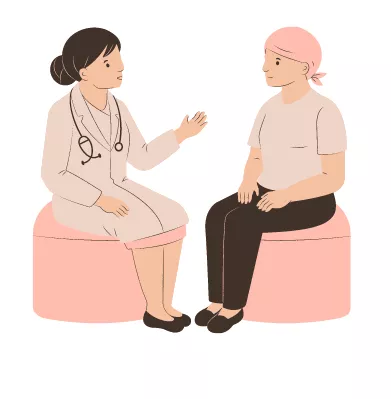Without Trust, Physicians and Hospitals Will Struggle to Promote Health Guidelines
September 11, 2024

This post originally appeared here.
In her new book, The Anatomy of Deception (Oxford University Press, 2024), one of us (Sara) argues that restricted access to high-quality healthcare in the U.S. destroys trust in traditional medicine and leads people to default to alternative sources of care. Through interviews with people who express distrust of the traditional healthcare system, she provides evidence that when people have trouble obtaining the care they need, their reaction can be to believe anti-science attitudes and conspiracy theories about the healthcare system. Sometimes, this leads to tragic decisions in which people shun traditional medicine for serious health problems and develop life-threatening complications.
Now, a new study published in JAMA Network Open at the end of July finds that trust in physicians and hospitals declined substantially during the most severe period of the Covid-19 pandemic. Roy H. Perlis of the Massachusetts General Hospital and Harvard Medical School and colleagues used survey data from 582,634 adults residing in the U.S. to measure trust in physicians and hospitals between 2020 and 2024. They found that the proportion of people who said they had a lot of trust in physicians and hospitals fell from 71.5% in 2020 to 40.1% in 2024. Decreased trust was associated with being 25 to 64 years of age, female gender, lower education level, lower income, Black race, and living in a rural area. Political affiliation was not associated with trust levels in this study.
Among the reasons respondents said they had reduced trust in U.S. physicians and hospitals were:
- Physicians and hospitals put financial incentives over patient care
- Poor quality of care and negligence
- Physicians and hospitals are influenced by external entities and agendas
- Discrimination and bias
People With Low Access to Healthcare Are the Most Mistrustful
This study shows that people who are the victims of discrimination or struggle with socioeconomic challenges are especially likely to lose trust in the healthcare system. They are precisely the people Sara talks about in her book: people who for a variety of reasons including lack of adequate health insurance and residing in areas where there are doctor and hospital shortages, have difficulty accessing healthcare. Gorman argues that this leads to phenomena like vaccine hesitancy and acceptance of non-evidence-based intervention for illnesses. More and more people turn to easily accessible alternatives to traditional healthcare when they can’t access mainstream medicine.
When another research group surveyed more than 4,000 adults in 2022 and asked them about trust in federal, state, and local health agencies, they found that high-level trust was low for the Centers of Disease Control and Prevention (CDC) (37%) and the National Institutes of Health (NIH) (33%). The investigators found that “Lower trust was related primarily to respondents’ beliefs that health recommendations were politically influenced and inconsistent.” Once again, if people distrust the recommendations made by public health agencies, they will inevitably become vulnerable to accepting alternative recommendations that lack a scientific basis and jeopardize their health.
Mistrust of Cancer Recommendations
To give an example of just how serious this can be, another recent study published in JAMA Network Open, also published in July 2024, looked at trust in government health agencies for cancer information. We might think that when deciding what course of treatment to follow when one has a cancer diagnosis, people who think it is imperative to follow professional medical guidelines and accept scientifically validated interventions. Yet, the study showed that nearly one third of people expressed low trust in government health agencies’ cancer information. Although this study did not delve into the actual interventions (or lack thereof) that people chose to take for their cancer diagnoses, low levels of trust in traditional medicine can translate into reduced adoption of evidence-based solutions. In yet another study, conservative viewpoints were associated with low trust in government public health agencies’ cancer information. Thus, it seems that many people mistrust evidence-based recommendations even for diseases as serious and potentially life-threatening as cancer.
All the papers dealing with trust in health recommendations end with calls for targeted programs to rebuild trust, yet none of them are in a position to suggest exactly how this can be done. Is the solution to ensure that more people have easier access to traditional healthcare? This of course is a tall order. Thanks to the Affordable Care Act (ACA, also sometimes called Obamacare), the number of people in the U.S. who lack health insurance has dropped dramatically. Nevertheless, more than 20 million U.S. Americans still lack health insurance. And even with health insurance, people living in rural areas of the U.S. may find it difficult to locate nearby sources of healthcare because of doctor and hospital shortages. These are the people who are especially likely to mistrust traditional healthcare and to seek out alternatives. Correcting these problems will require major shifts in our approach to healthcare. First, we must acknowledge that universal access to high-quality healthcare is a moral imperative and public good. Right now, there still seems to be substantial resistance to this fundamental principle and consequently we stand by while millions of U.S. Americans lack access to the medical services they deserve. Second, we will have to devote far more funding at all levels of government to achieve the goal of universal access. The ACA has taught us that legislation to increase healthcare access works, but we must go farther.
It is always tragic when, because of mistrust, someone forgoes potentially life-saving treatment and opts instead for ineffective alternatives. Therapy for cancer has improved dramatically in recent decades, but growing numbers of people appear to be mistrustful of what traditional medicine has to offer, sometimes based on politically-driven ideological beliefs. We don’t want to see people die from cancer or any other serious illness because they believe that treatments recommended by government health agencies are ineffective or unsafe. In our view, making getting the treatments recommended by those guidelines truly available to people is the key step in rebuilding trust.
Related Posts

Is Trust Uniquely Human?
Posted in trust
This post originally appeared here. One of us (Sara) recently published a book about trust in the healthcare system. While she was spending countless hours studying the nature of this...

Do Doctors and Patients Understand Uncertainty in the Same Way?
Posted in trust
Do doctors and patients think about medical uncertainty in the same way? There's reason to believe we don't understand this well enough to really know how to build back trust.

The Consequences of Being Mistreated by the Healthcare System
Posted in Health disparities
What are the consequences of being mistreated by the healthcare system? Here we think about what effect this has on health outcomes for communities of color.